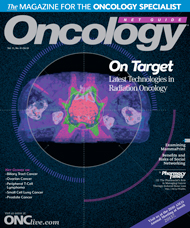Publication
Article
ONCNG Oncology
Benefits and Risks of Social Networking
Author(s):
The increasing popularity of social networking Websites is one of the more interesting aspects of the rapidly evolving information technology sector, as it allows families, friends, business associates, or simply people with similar interests to easily communicate with each other, either privately or in a public forum.
The increasing popularity of social networking Websites is one of the more interesting aspects of the rapidly evolving information technology sector, as it allows families, friends, business associates, or simply people with similar interests to easily communicate with each other, either privately or in a public forum. Although numerous articles have been written on the use of social networking sites, few studies have comprehensively examined the impact of this very public forum as a means of personal communication. Nevertheless, the available literature indicates that this medium can have both negative and positive aspects.
Consider, for example, an assault on a 12-year-old middle- school student who law enforcement personnel suspect was targeted after a Facebook group urged students to beat up redheads.1 The father of a student in the school where the event occurred said he was concerned about how the Internet may have motivated the students involved, which was no doubt a concern shared by other parents.
A recent story in Time magazine, which examined anonymous gossip sites on college campuses, raises further concern.2 While the article appropriately notes the legitimate desire to avoid what could be classified as censorship, the effect of the current lack of accountability and the potential devastating personal impact associated with social network pronouncements—true, false, or somewhere in between— regarding an individual’s prior sexual experiences, current sexual orientation, or the presence of a sexually transmitted disease cannot be overstated.2
Finally, in a report that unfortunately hits very close to home, researchers found that 60% of medical schools that responded to a national survey noted incidents of students posting unprofessional online content.3 Such content included profanity, discriminatory language, depiction of intoxication, and sexually suggestive material. While this report should perhaps not come as a surprise to anyone, it will hopefully serve as a “wake-up-call” regarding the need for medical (and pre- medical) educational efforts in this arena, and the need for carefully considered (but essential) disciplinary strategies when such material is uncovered.
Whereas social networking sites may have negative aspects, there are also some benefi ts. One report found that social networking Websites can have a potentially favorable impact on college students, especially those who suffer from low self-esteem or are generally unsatisfied with their lives.4 For instance, people who may be particularly shy or uncomfortable in certain social situations may feel more at ease in their interactions with others.
Online social networking is unquestionably here to stay and will likely continue to grow in both popularity and influence. As a result, additional scientific studies and analysis are needed to more fully understand this medium’s impact and potential, and it is incumbent upon medical professionals to recognize that this rapidly expanding and evolving method of communication can have both detrimental and beneficial effects on the health and welfare of their patients, families, colleagues, and the general public.
Maurie Markman, MD, is editor-in-chief of Oncology Net Guide and vice president of clinical research for the University of Texas MD Anderson Cancer Center in Houston, Texas.
References
1. Gorman A. Facebook group suspected in ‘ginger’ assault. Los Angeles Times. November 22, 2009. http://bit.ly/74mjgW.
2. Yan S. Colleges fight back against anonymous gossip sites. Time. December 7, 2009. http://bit.ly/8JubYM.
3. Chretien KC, Greysen SR, Chretien JP, Kind T. Online posting of unprofessional content by medical students.JAMA. 2009;302(12):1309-1315. www.ncbi.nlm.nih.gov/sites/entrez/19773566.
4. Ellison NB, Steinfield C, Lampe C. The benefits of Facebook “friends:” Social capital and college students’ use of online social network sites. Journal of Computer-Mediated Communication. 2007;12(4):article1.
